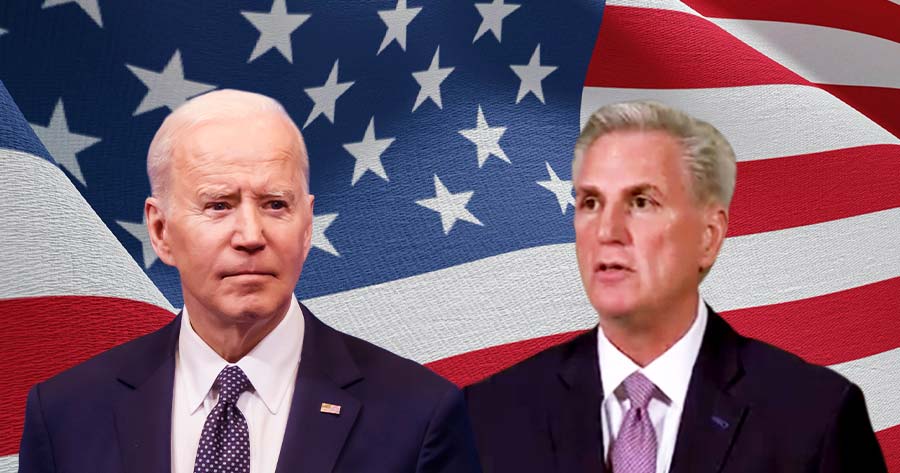The game between the House of Representatives and the Senate is playing using the debt limit as hostage could lead to a catastrophic default in June.
The House Republicans passed a bill last week to raise the debt limit by 1.5 trillion, but came with steep spending cuts in the budget, including a claw back on unused Covid-19 funds and halting President Joe Biden’s student loans forgiveness.
The Treasury warned that its special accounting maneuvers could run dry as soon as June 1, 2023. The measure was imposed earlier this year after the borrowing cap hit $31.4 trillion on January 19. The Treasury kept up payments on debt, federal benefits and made other spending by using these extraordinary cash management maneuvers that suspended the sales of securities that state and local governments use to temporarily hold cash.
Despite the Treasury waving a red flag, the two political powers are not backing down with Democrats slammed Republican for holding the debt bill ‘ransom’ and downplayed the proposed bill as ‘unserious’ that was courting financial danger.
On top of that, the bill is highly unlikely to pass the Democrat-controlled Senate, though with a slim majority, and if it does, the White House said that the president would veto the bill.
Biden so far has refused to negotiate and said that the ceiling must be lifted without conditions and then they will talk about spending cuts.
Similar incident happened in 2011 that led to the global rating Standard & Poor cutting the United States to AA- with a negative outlook from top-tier AAA credit rating. The government narrowly dodged the bullet at that time, but left with a shameful historical record.
Moody’s Analytics Chief Enomist, Mark Zandi, once warned that seven million in the U.S. could lose their jobs and a 2008-style financial crisis could occur if the Republican and Democrat could not reach an agreement.
International Monetary Fund economist Filippo Gori said that the global economy and financial markets will receive a huge impact if the U.S. does not get the deal done, and the damage this time would be much worse than 2011.





